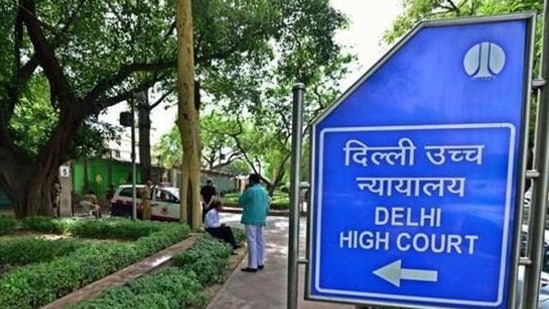Marriage exception in rape law an instrument of oppression, HC told
The high court is hearing PILs by NGOs RIT Foundation, All India Democratic Women’s Association and two individuals who have sought striking down the exception in the Indian law, saying that it discriminated against married women being sexually assaulted by their husbands.
The exception in Section 375 of the Indian Penal Code, which exempts forceful sexual intercourse by a man with his own wife from the offence of rape, must be viewed as an “instrument of oppression”, the amicus curiae informed the Delhi high court, which is hearing a batch of pleas seeking to criminalise marital rape.

The exception in Section 375 IPC decriminalizes marital rape and mandates that sexual intercourse by a man with his wife, the wife not being under fifteen years of age, is not rape.
Arguing before a bench of Justices Rajiv Shakdher and C Hari Shankar, senior advocate Rebecca John, told the court that exception 2 of IPC 375 is a colonial legacy given by the colonial masters, “who themselves have done away with it but we (India) continues to keep it”.
She said the court will uphold the physical integrity of women by striking it down and putting the people to notice that a marital partner’s consent must be respected.
“What is written in exception 2, which has been given to us from a doctrine, propounded 200 years ago by our colonial masters, does not reflect either the Indian man or the Indian woman, certainly not the Indian marriage. The colonial masters have done away with it. We continue to hang on to that legacy,” John said.
She argued that the section gives dominance to the husband or the man in the marriage, while completely disregarding the “no” by the wife and making her a subordinate partner in the alliance. She contended that if the court holds the same to be unconstitutional, it will not be creating a new offence as the same already exists, but only a class of individuals who at present enjoy legal immunity from the prosecution will lose it.
She submitted that the expectation of sex or a meaningful conjugal relation within a marriage is fair, and that there may even be a unilateral expectation for sex in a given case.
“If that expectation is not fulfilled, then the spouse has every right to resort to civil remedies. However, when the expectation within a marriage becomes a physical act based on coercion and force and is non-consensual, causing harm or injury… then that sexual act must become an offence,” John said.
While referring to the consequences, John asked whether the court will allow a husband, who is suffering from a venereal disease, to claim the exception and also permit it in a case where a woman is ill and a sexual relation will have detrimental effect on her health.
“The daily dose of forced sex has in fact a detrimental effect on her health. Can it still be said that the exception is absolute because it is not rape,” asked the senior counsel, adding that the court needs to look at the consequences of giving the marital partner such immunity.
The high court is hearing PILs by NGOs RIT Foundation, All India Democratic Women’s Association and two individuals who have sought striking down the exception in the Indian law, saying that it discriminated against married women being sexually assaulted by their husbands.



